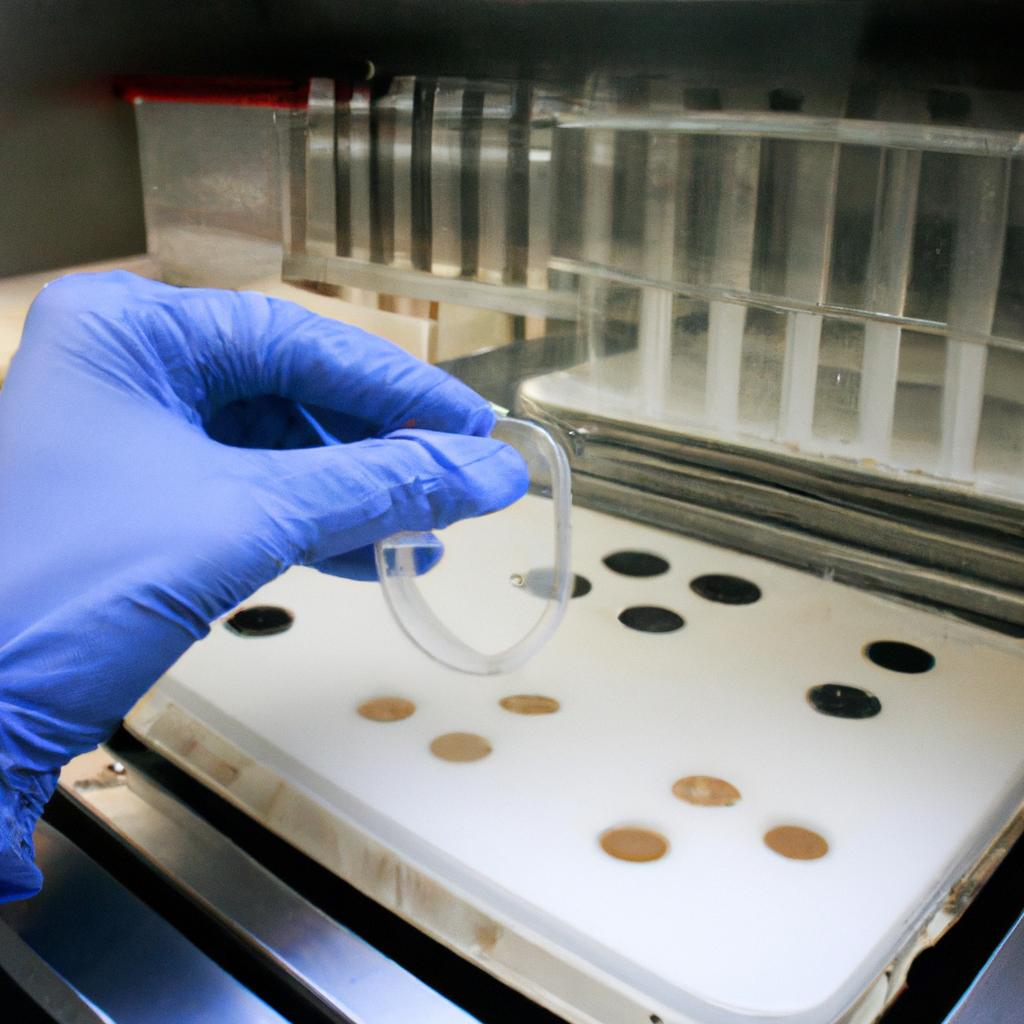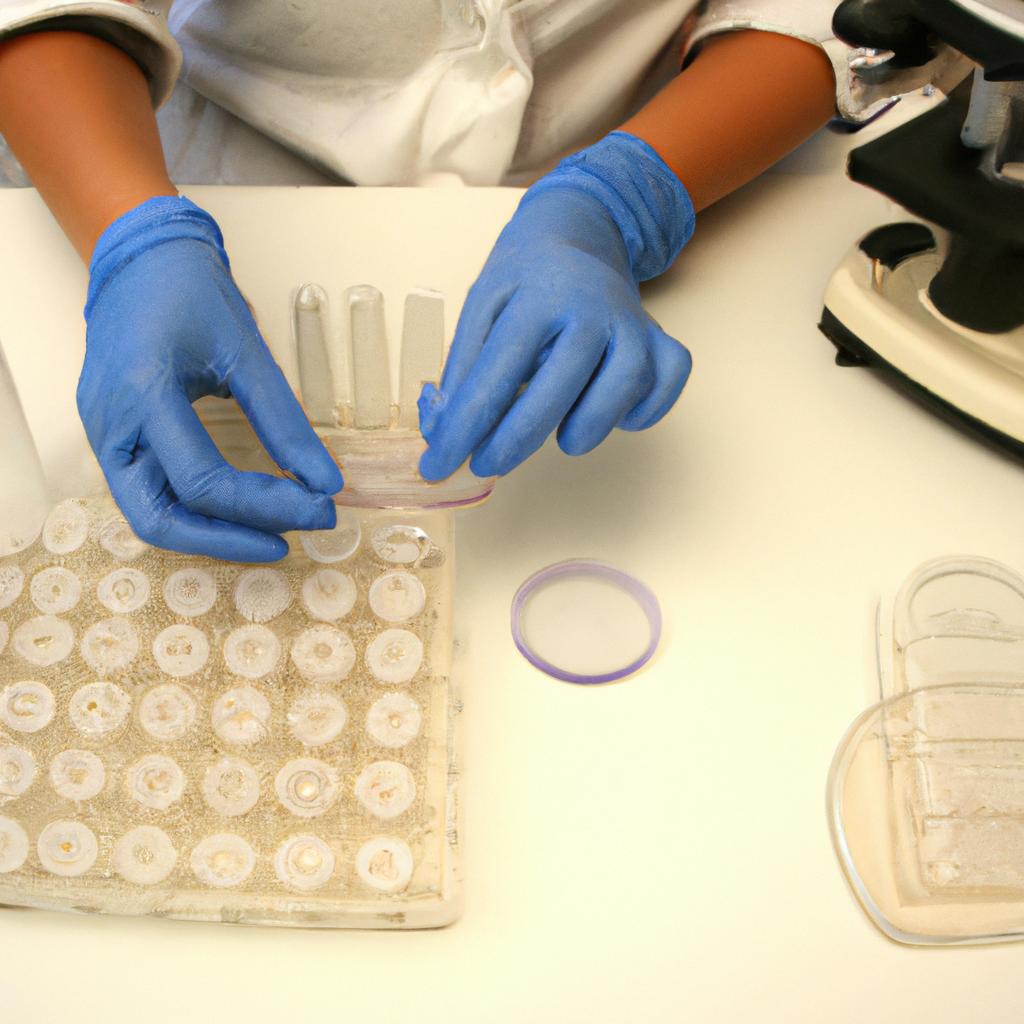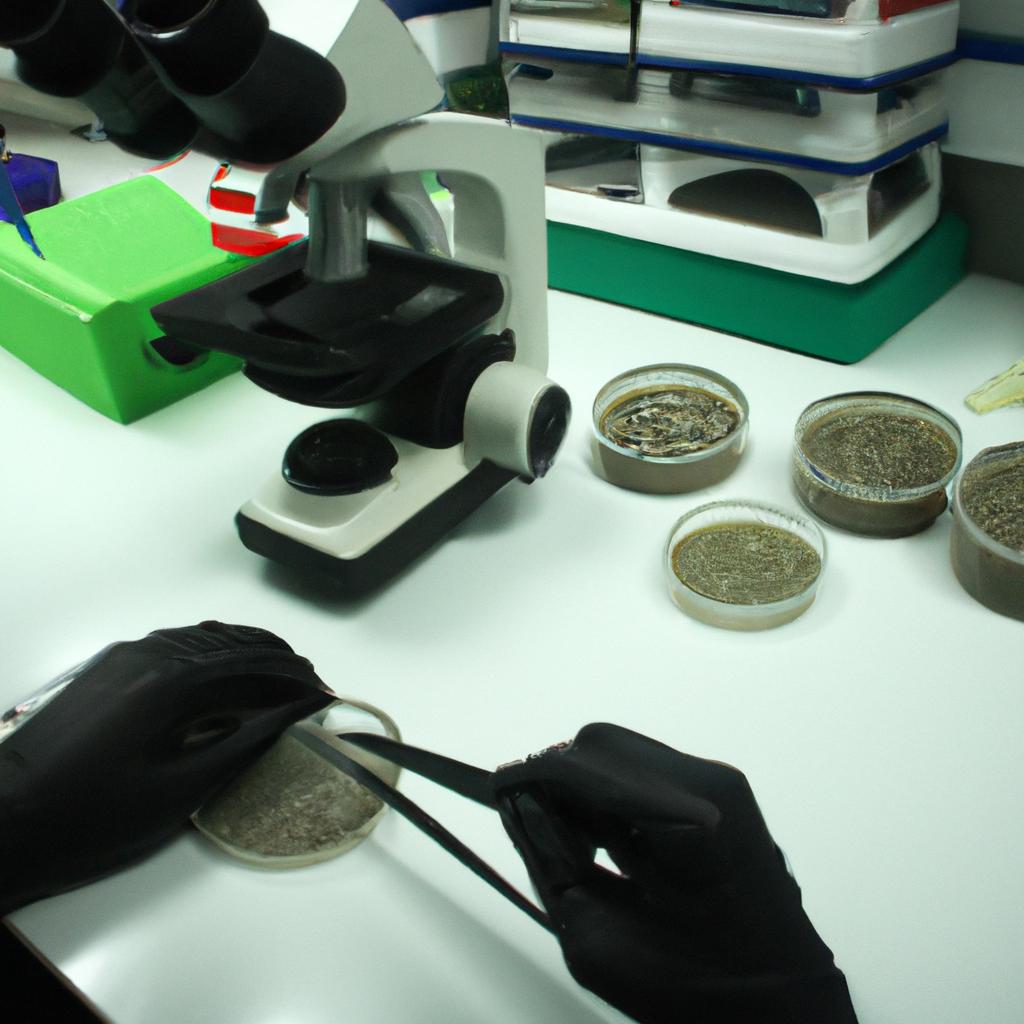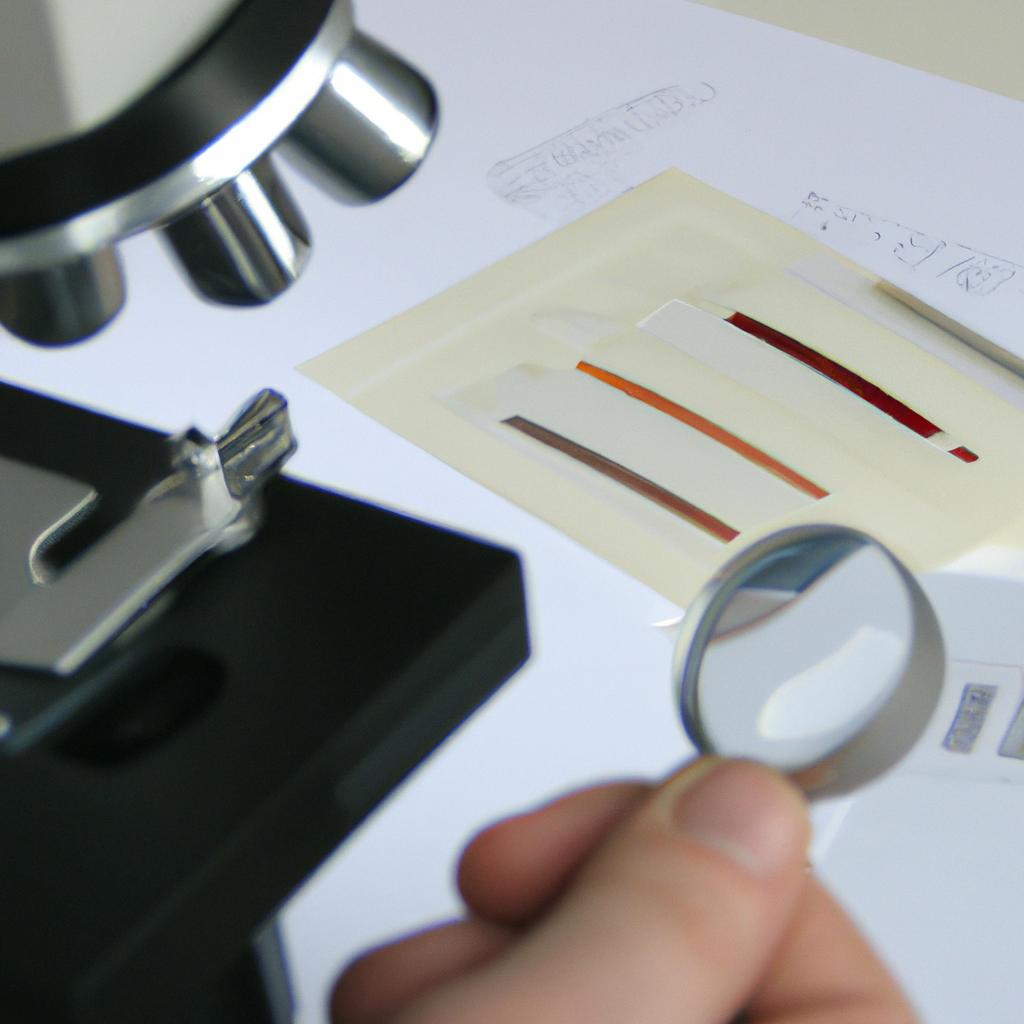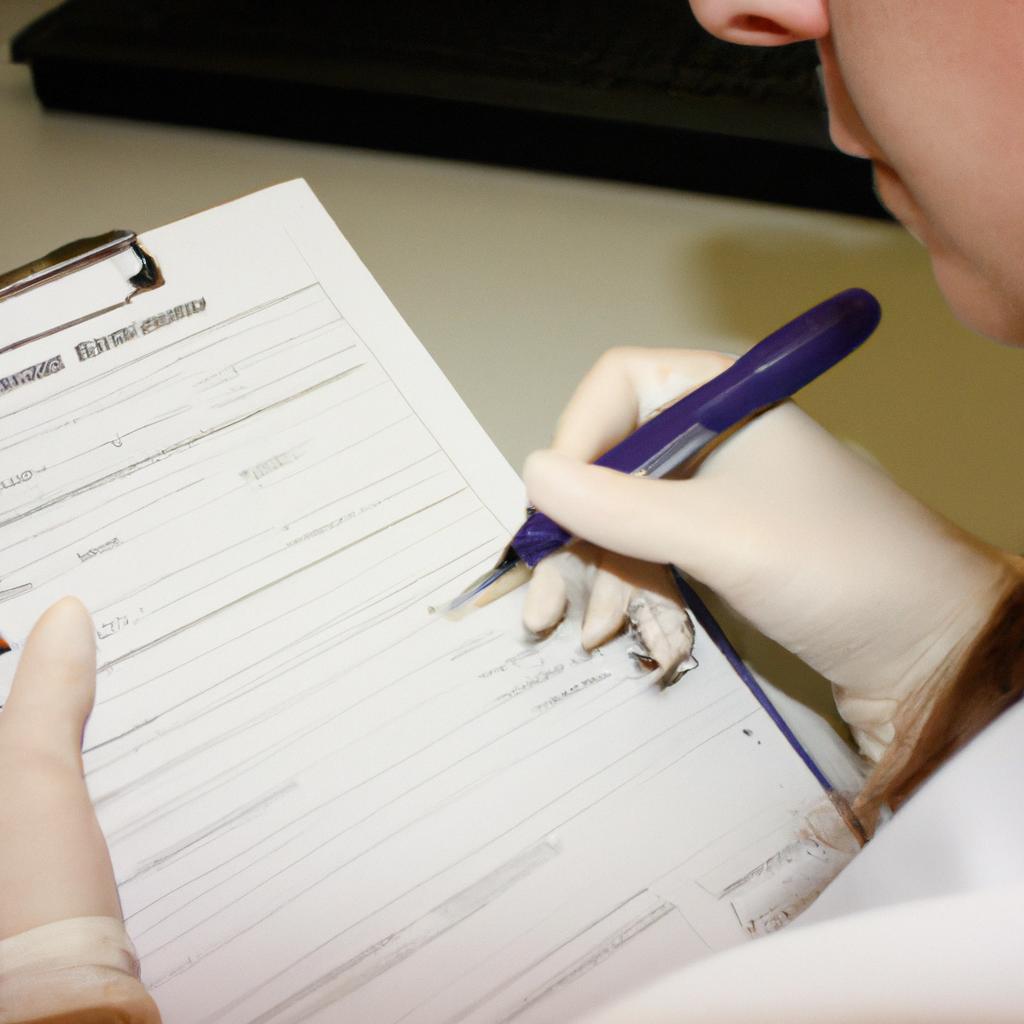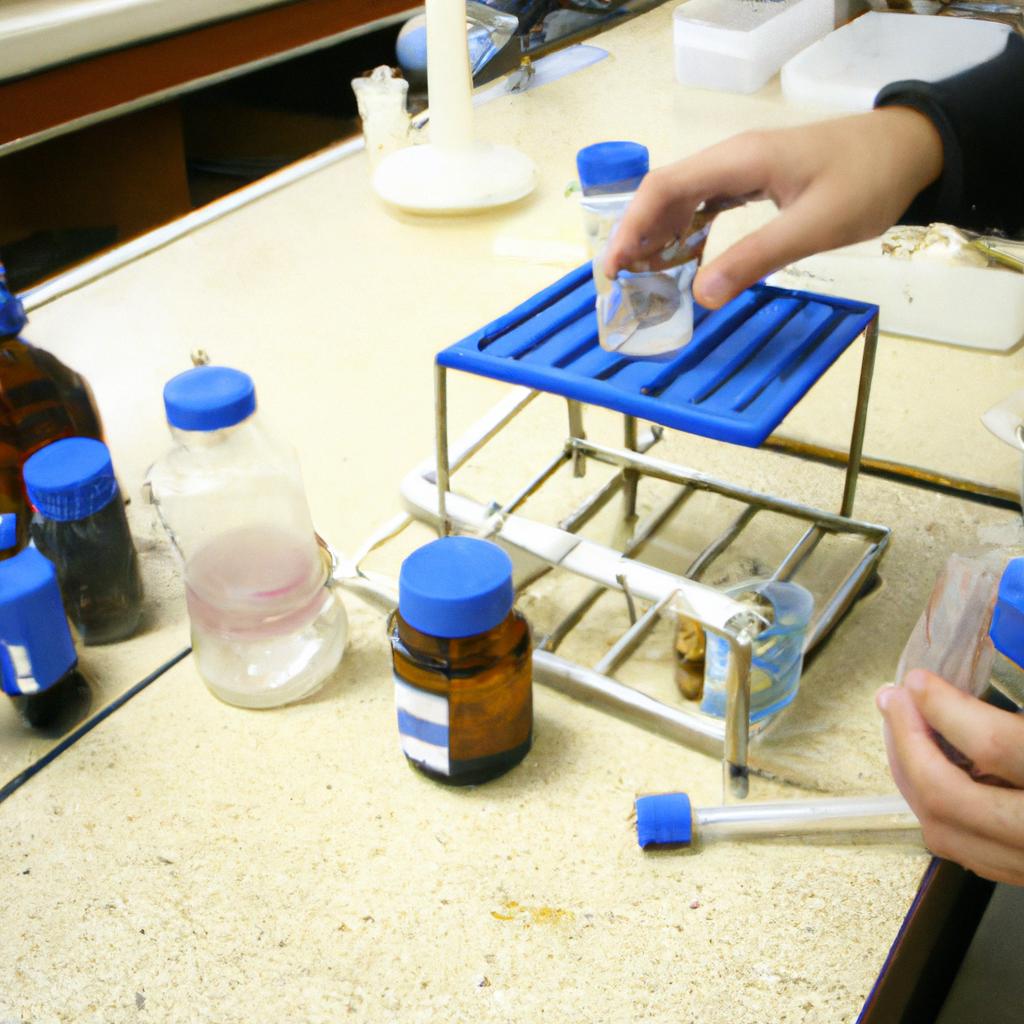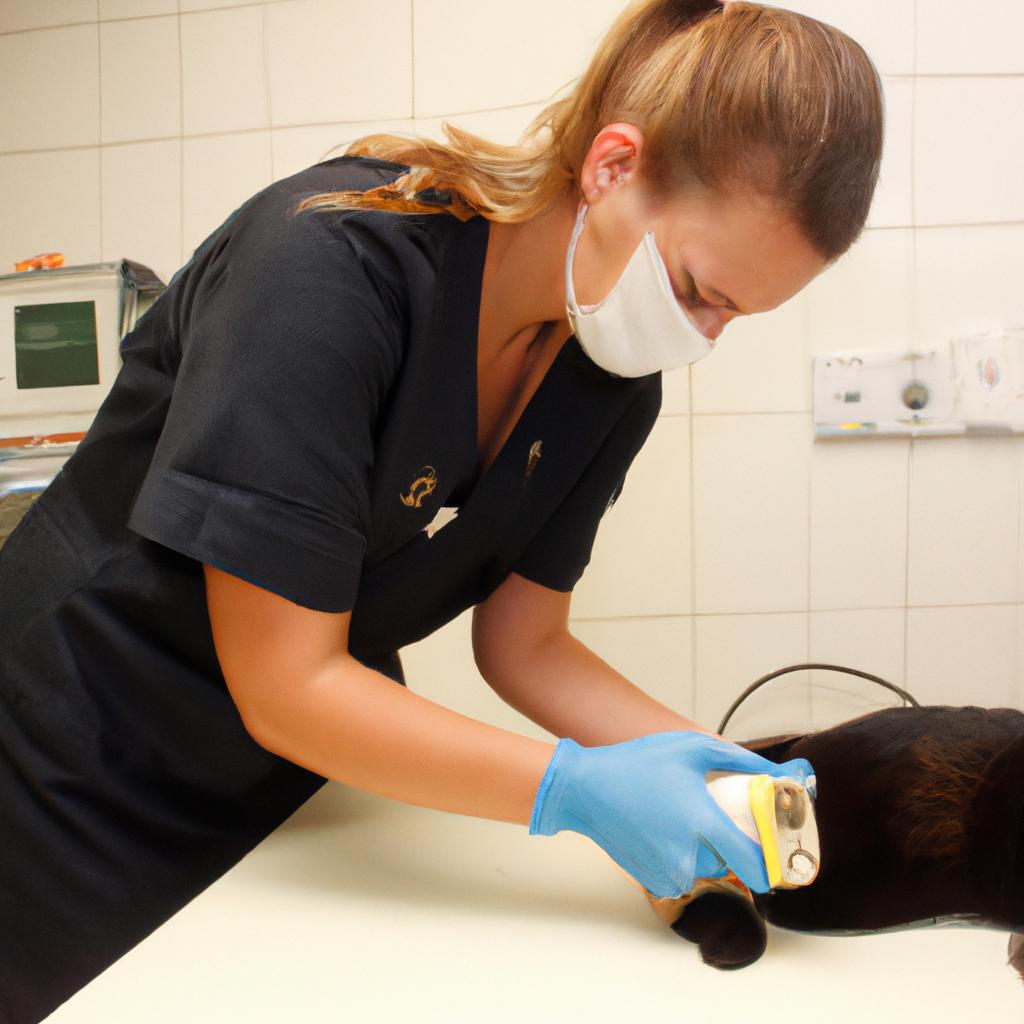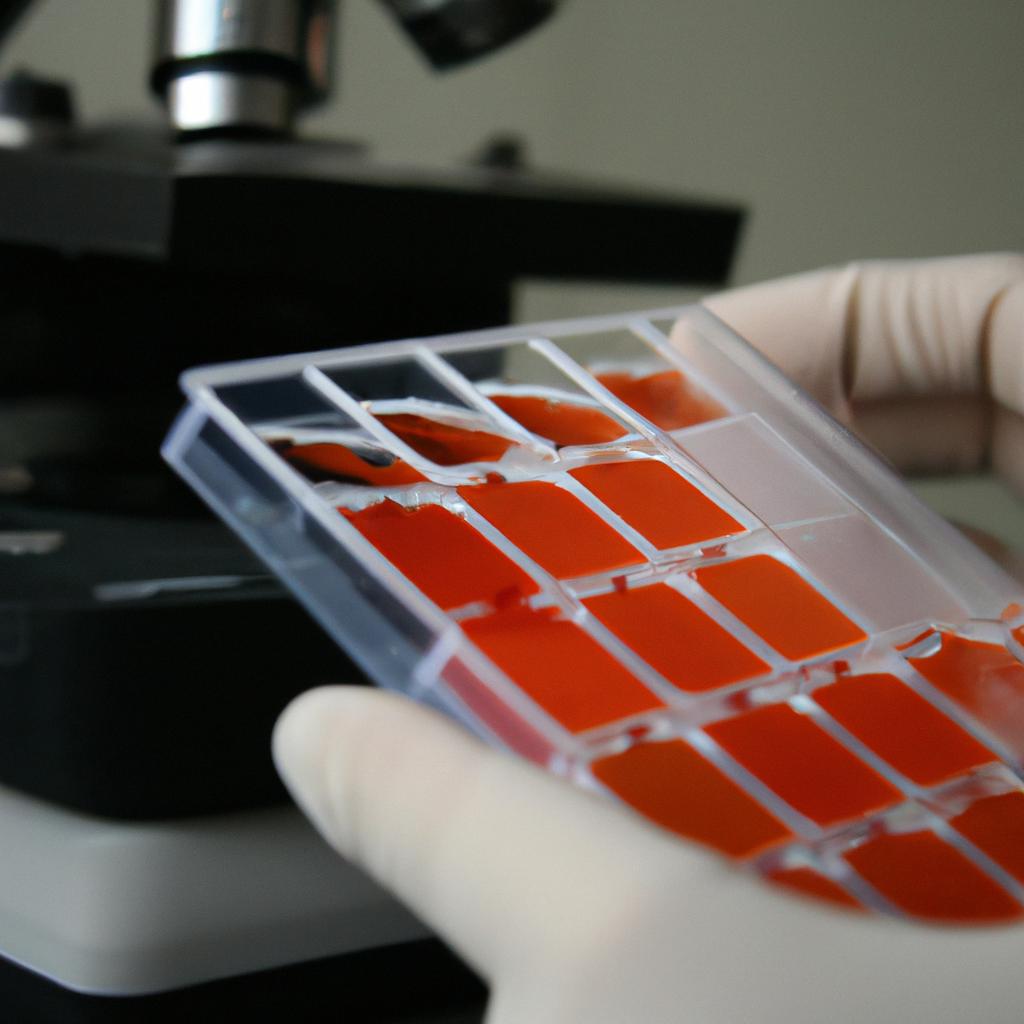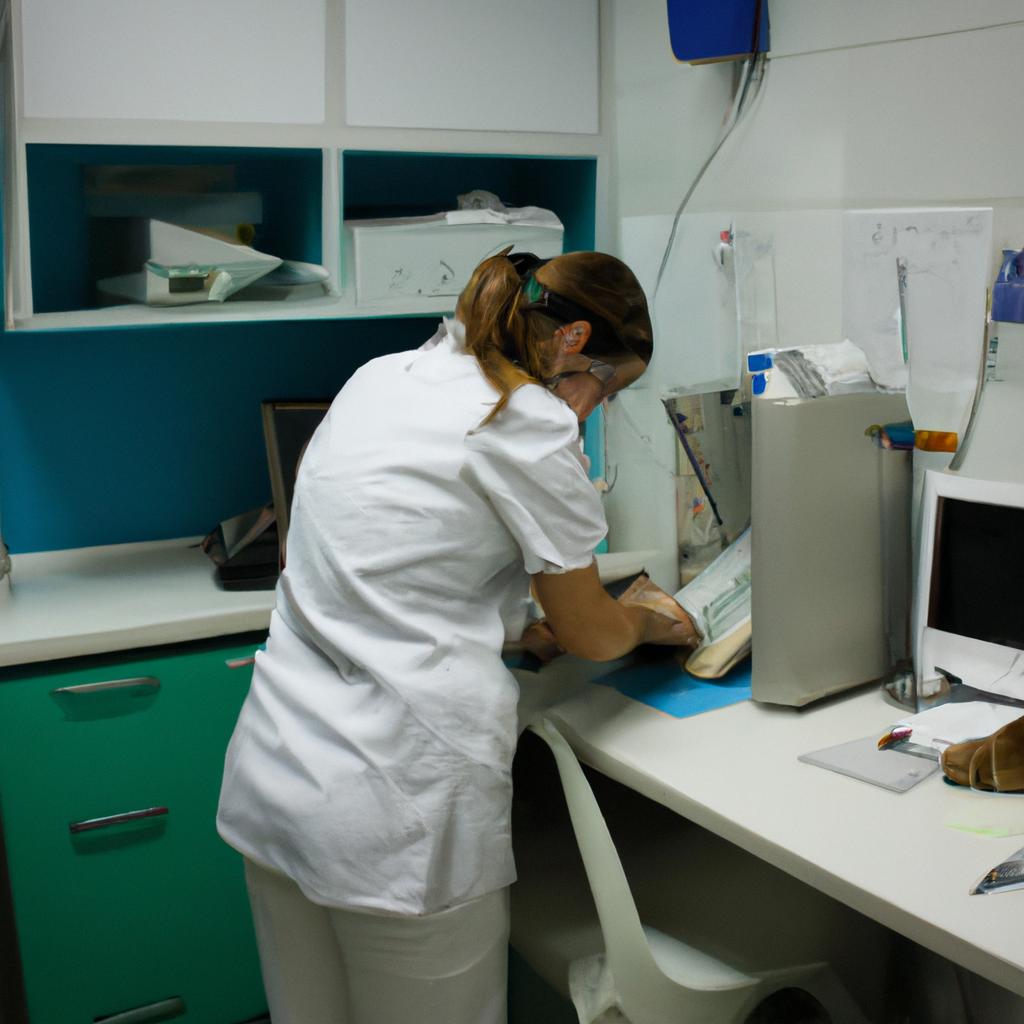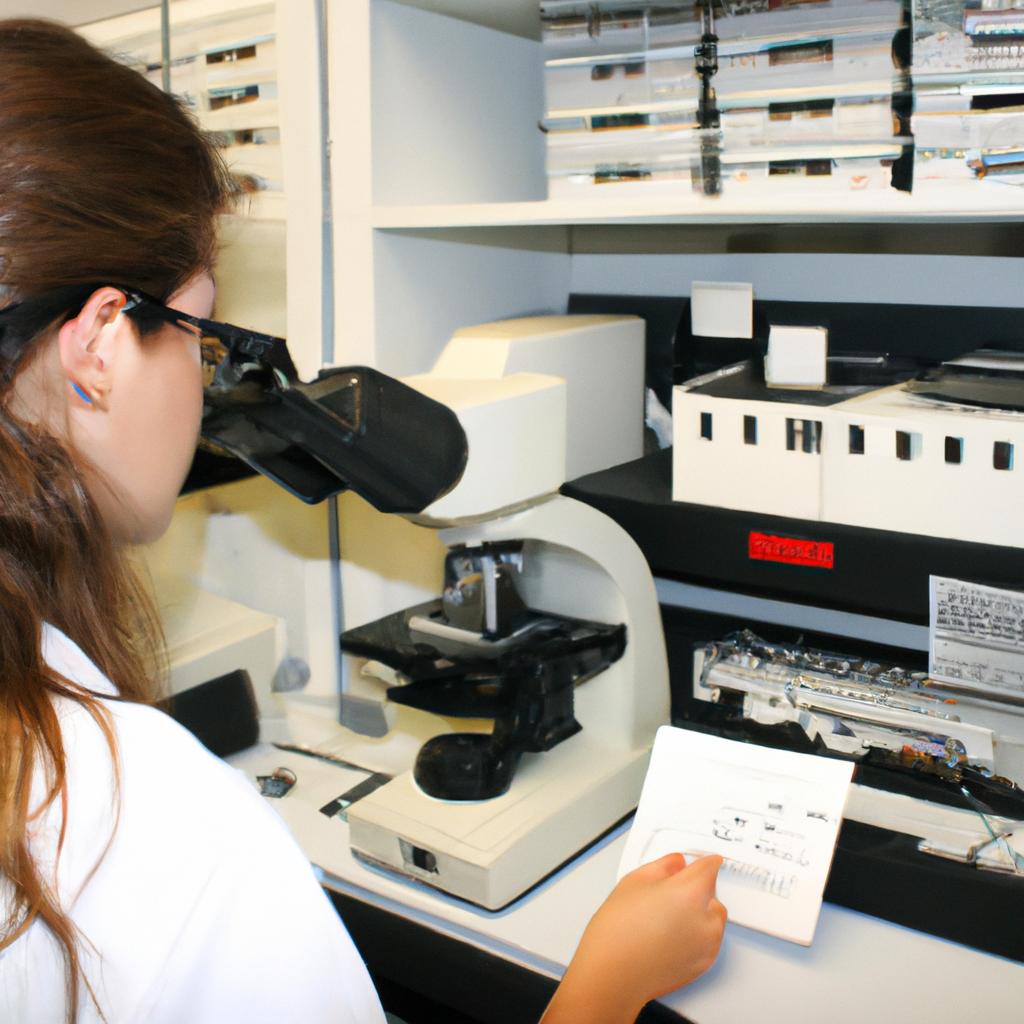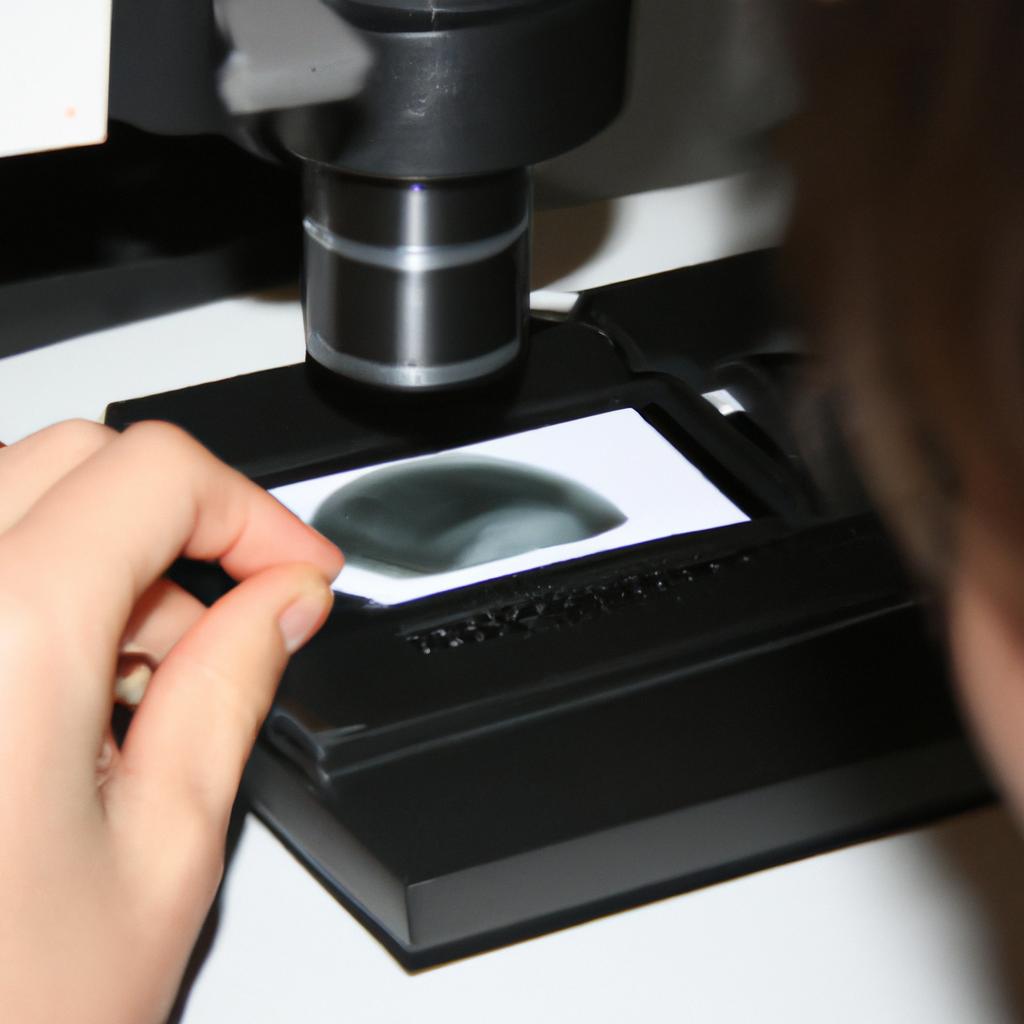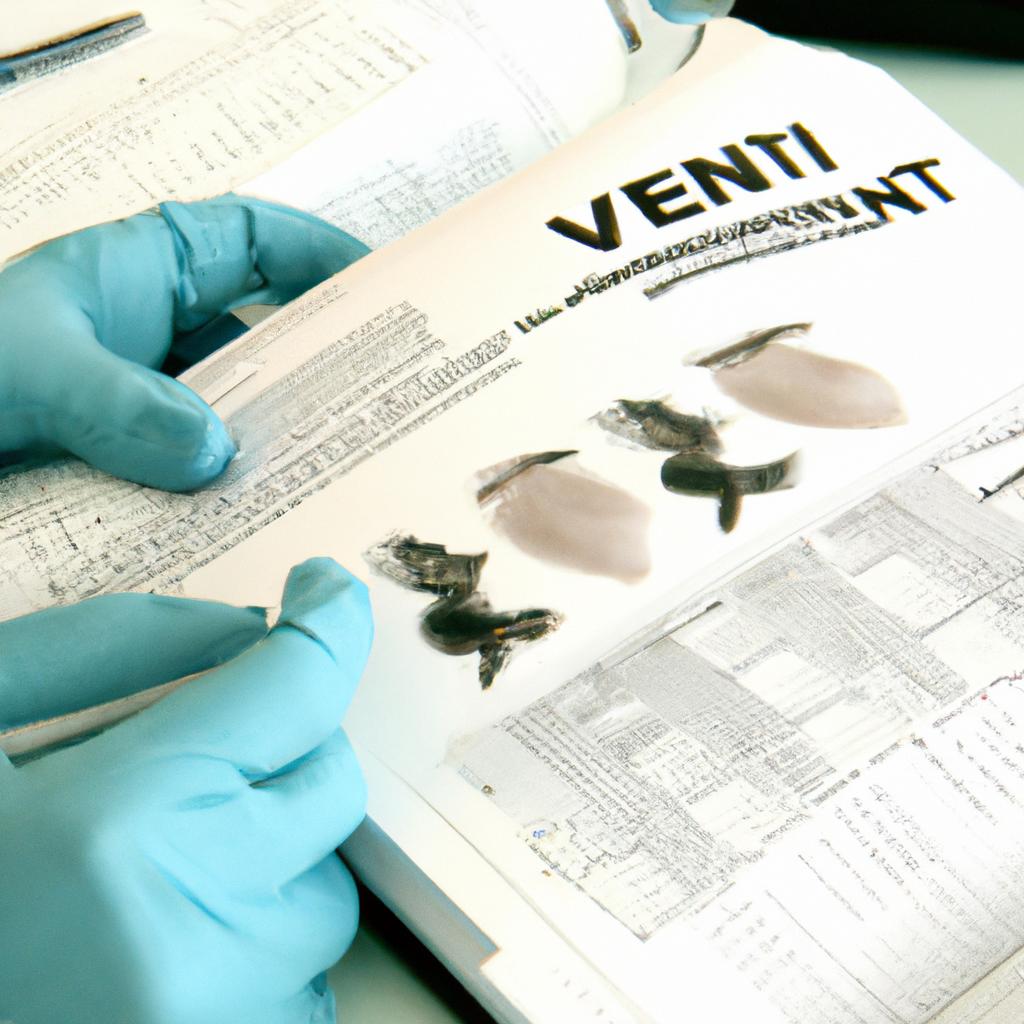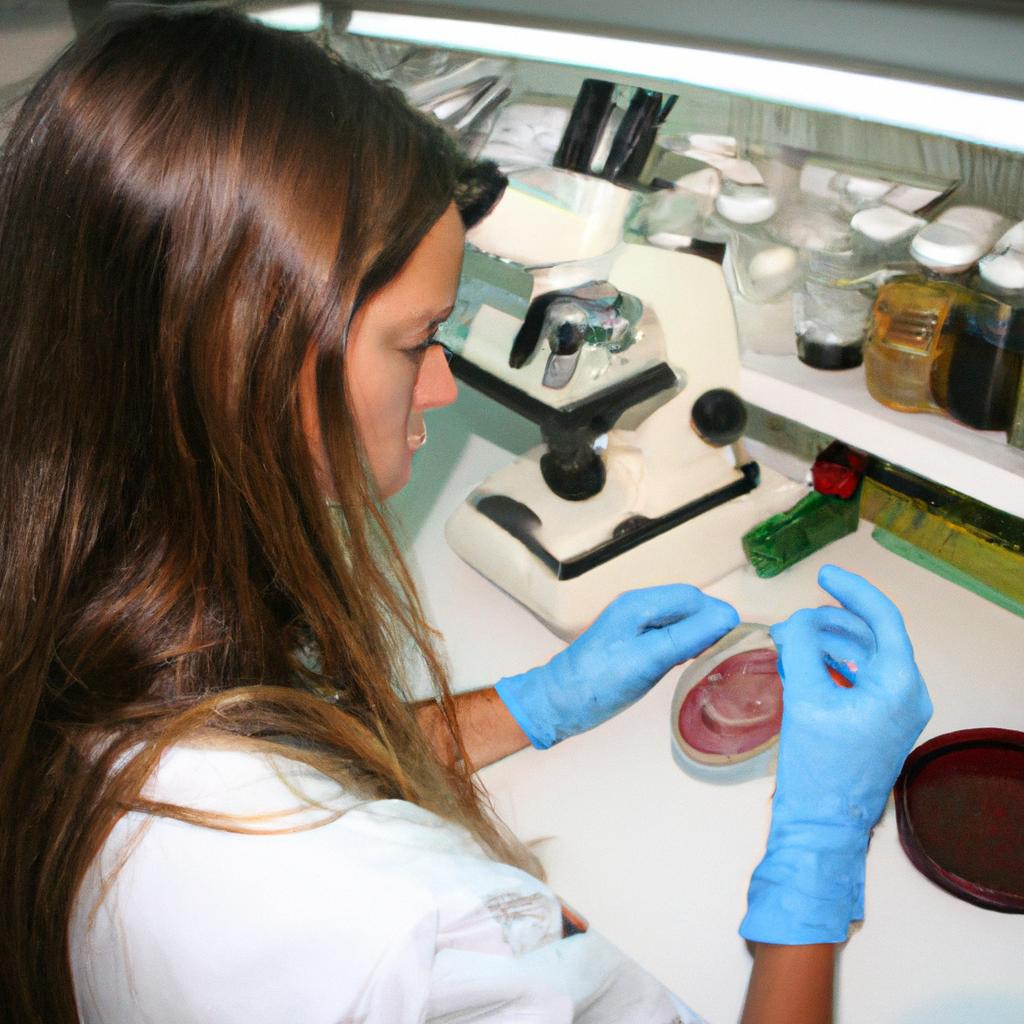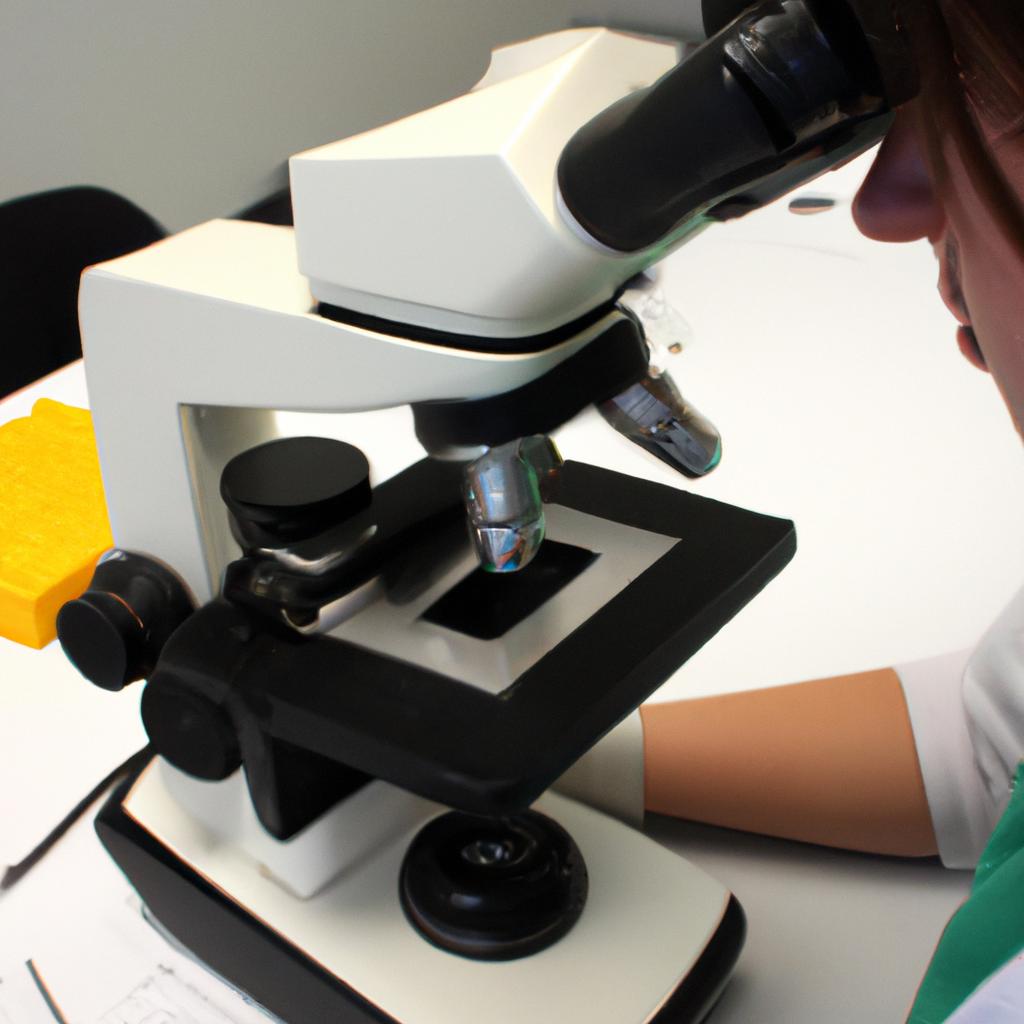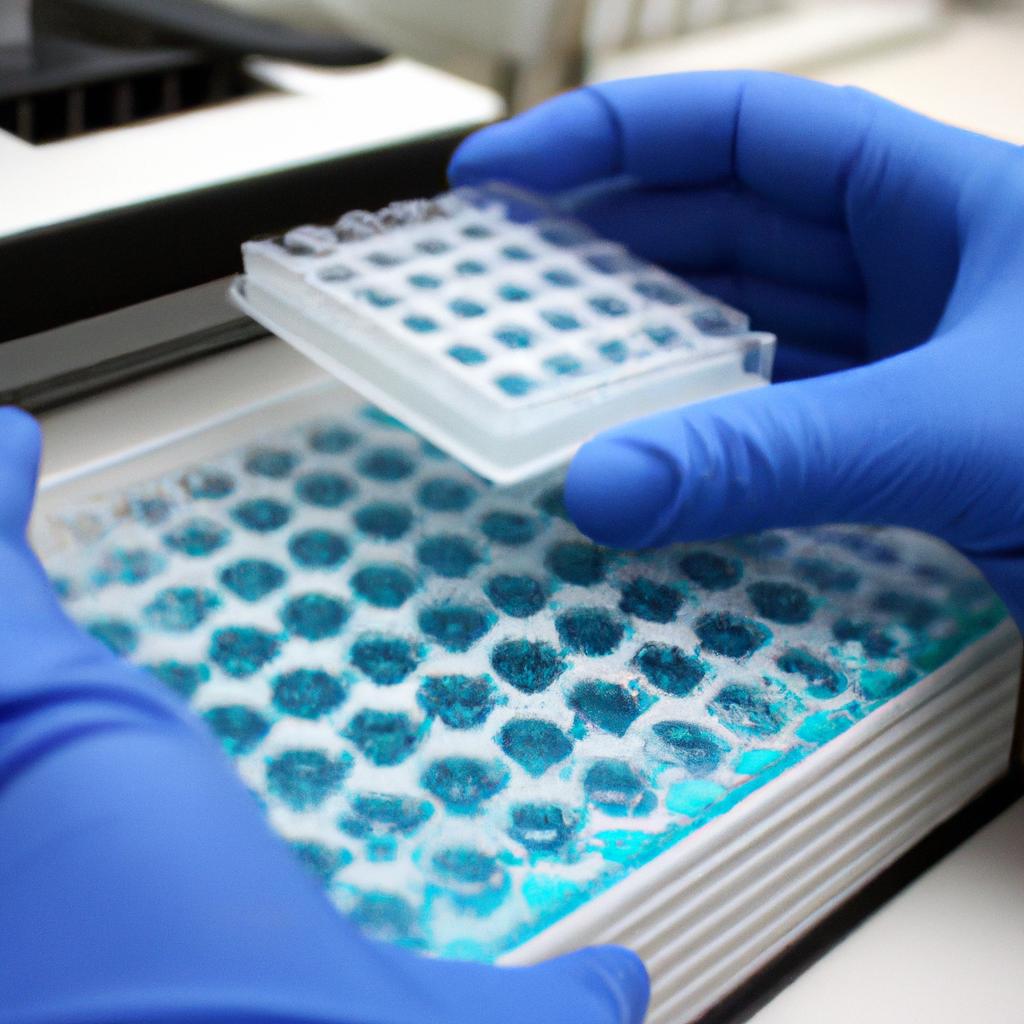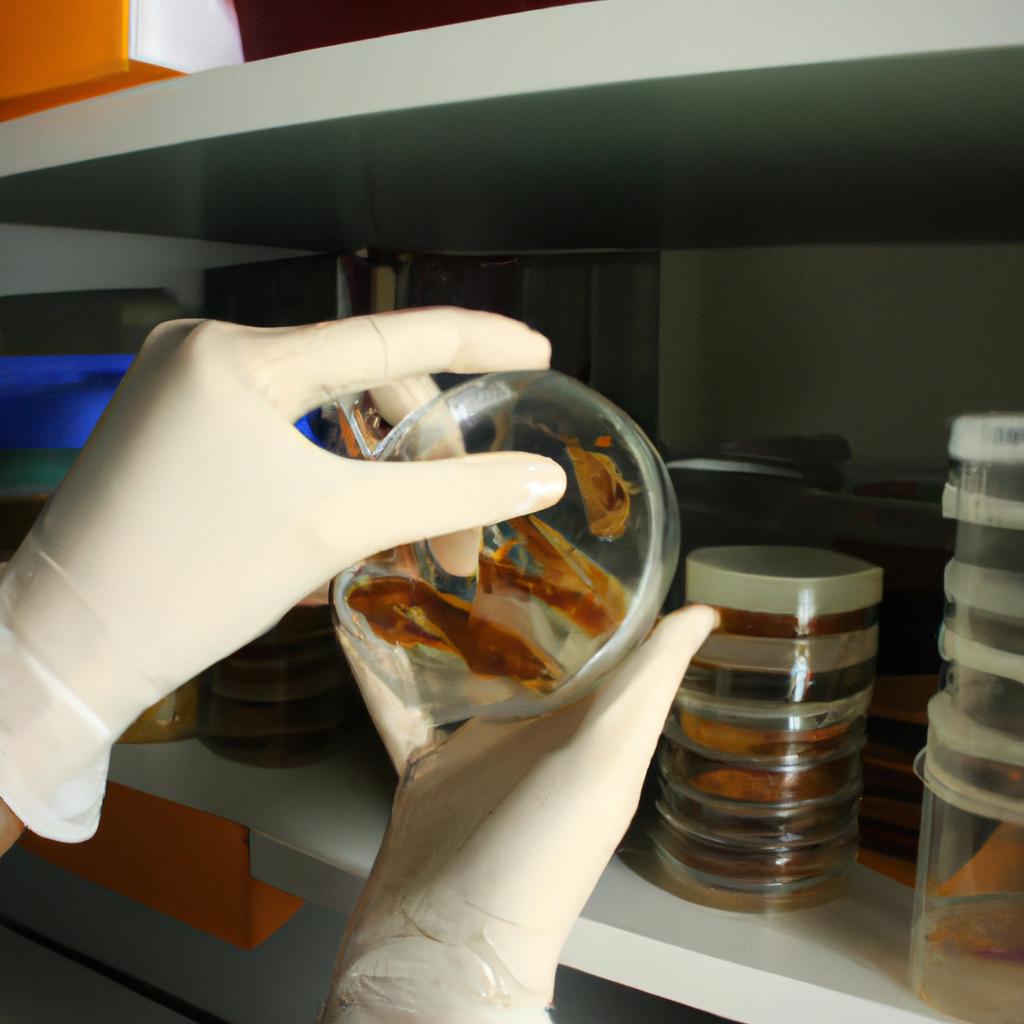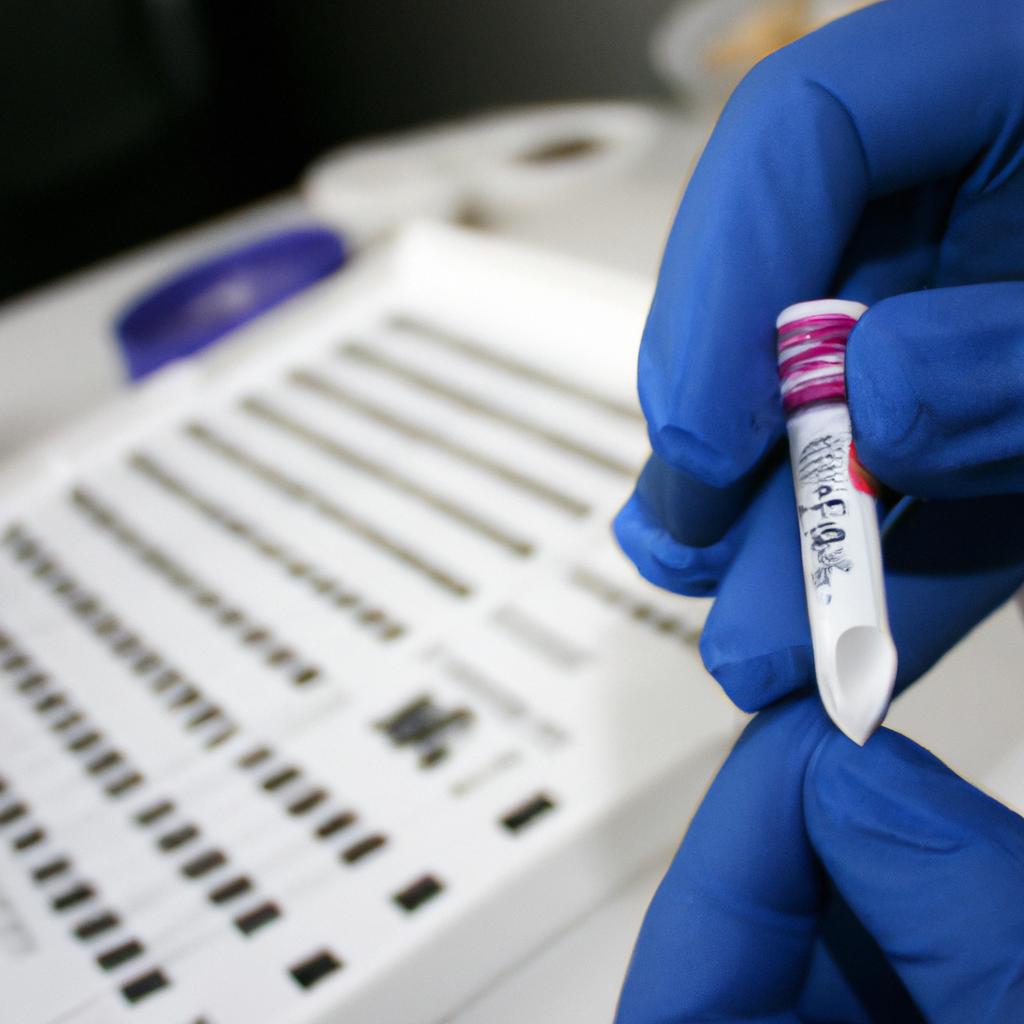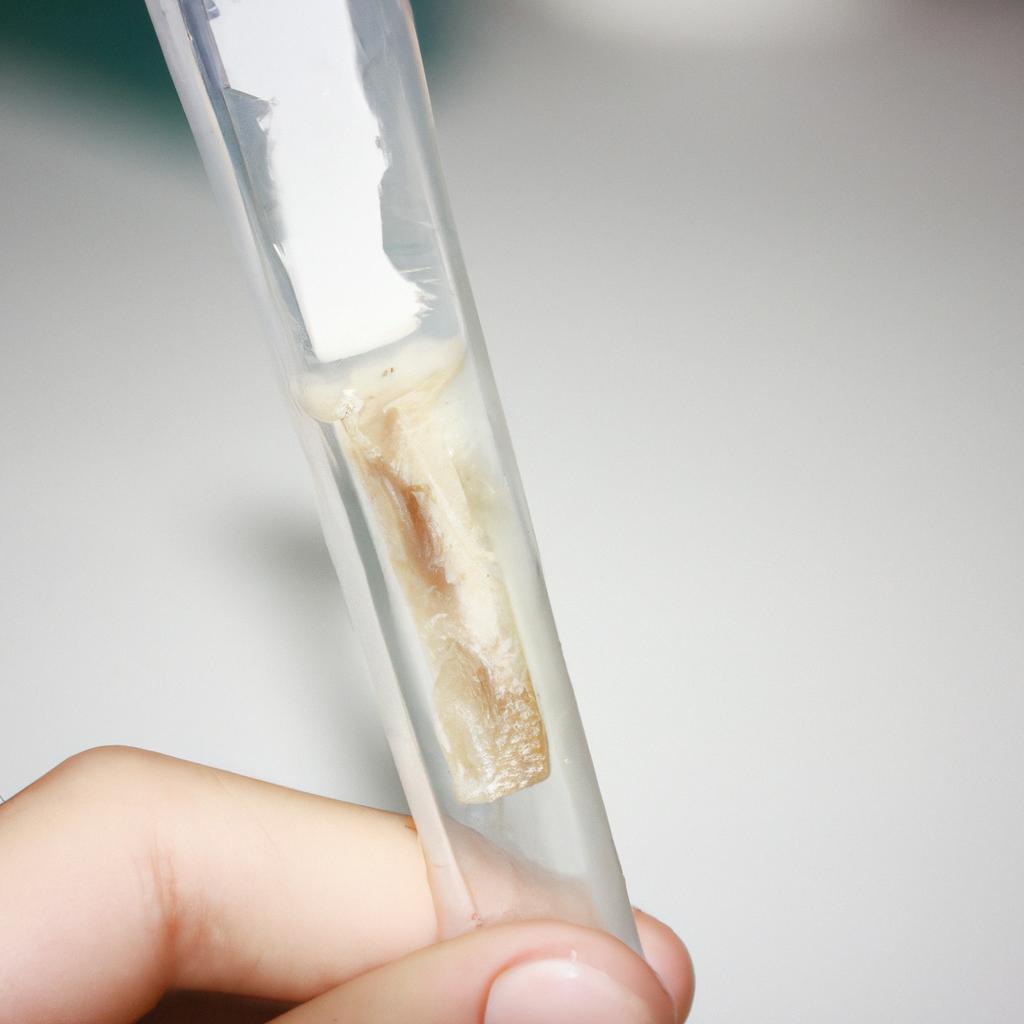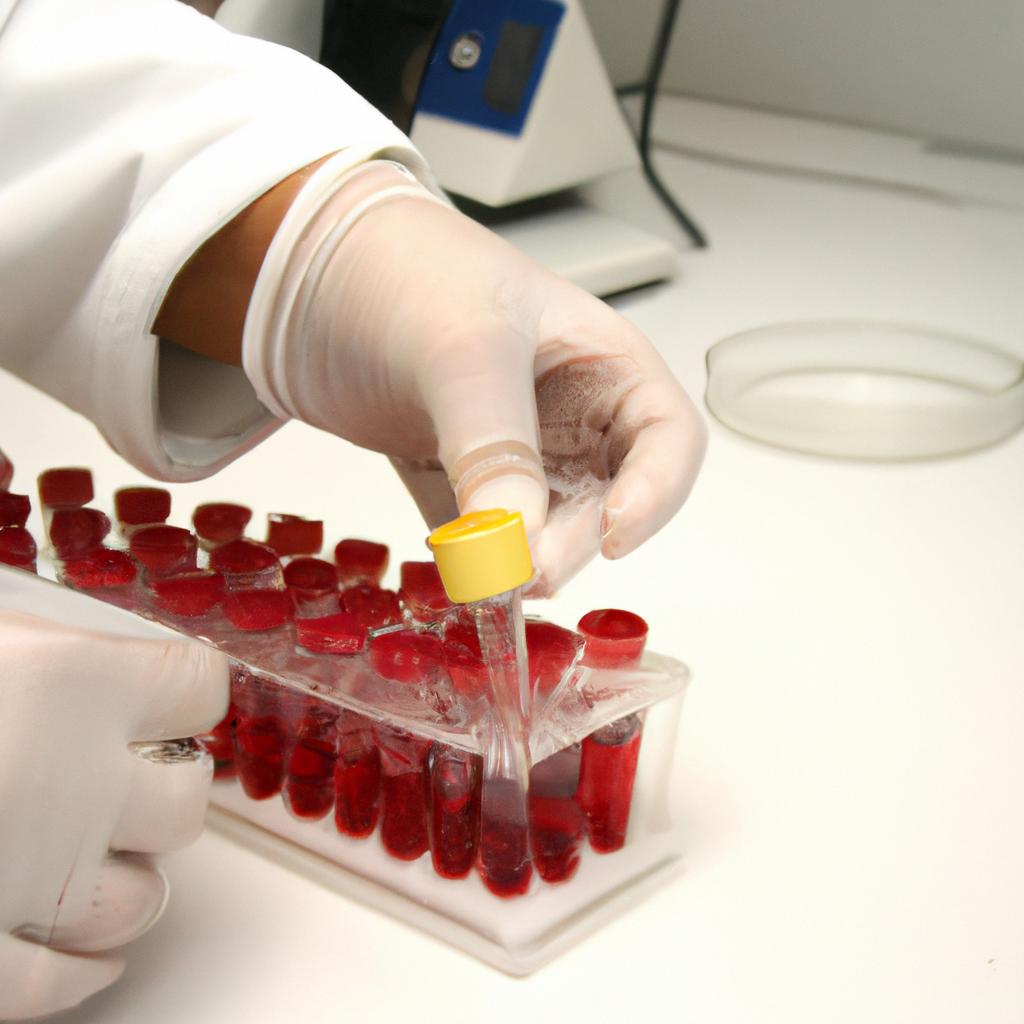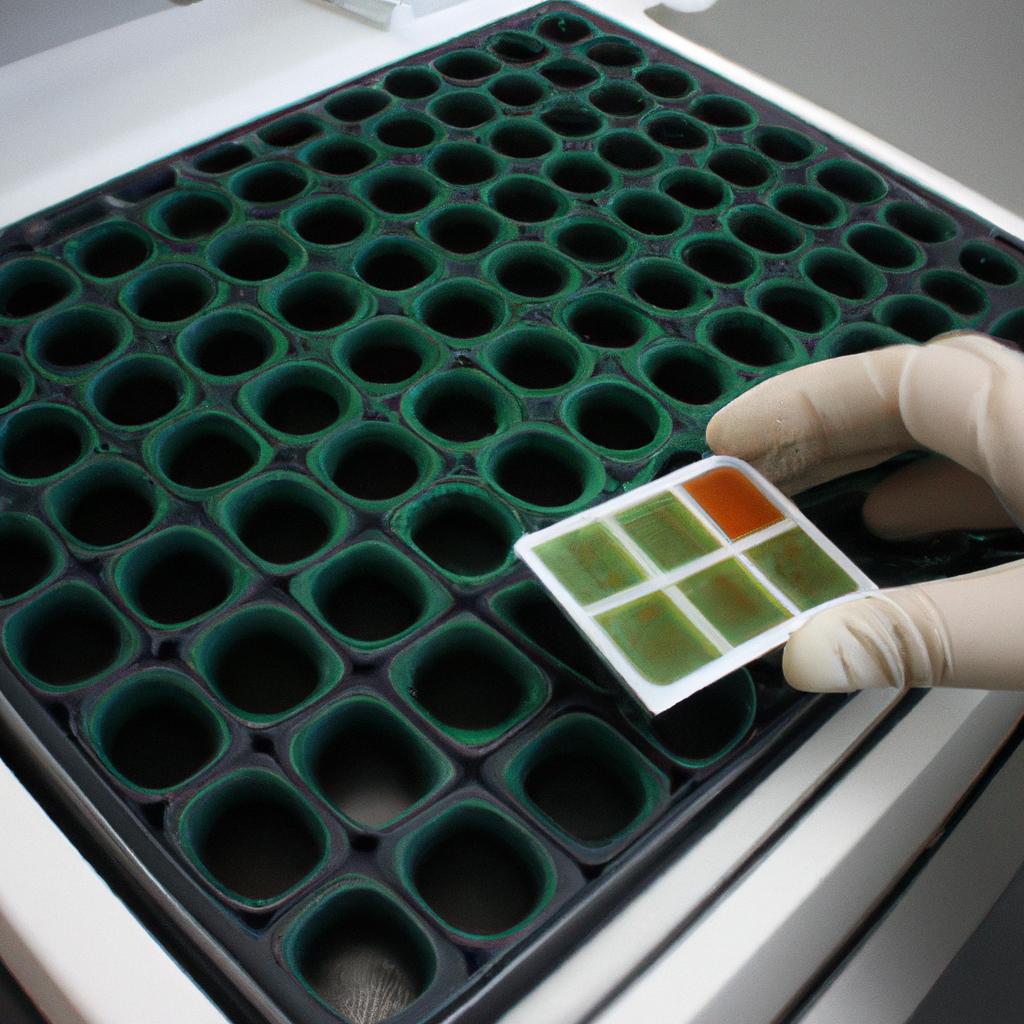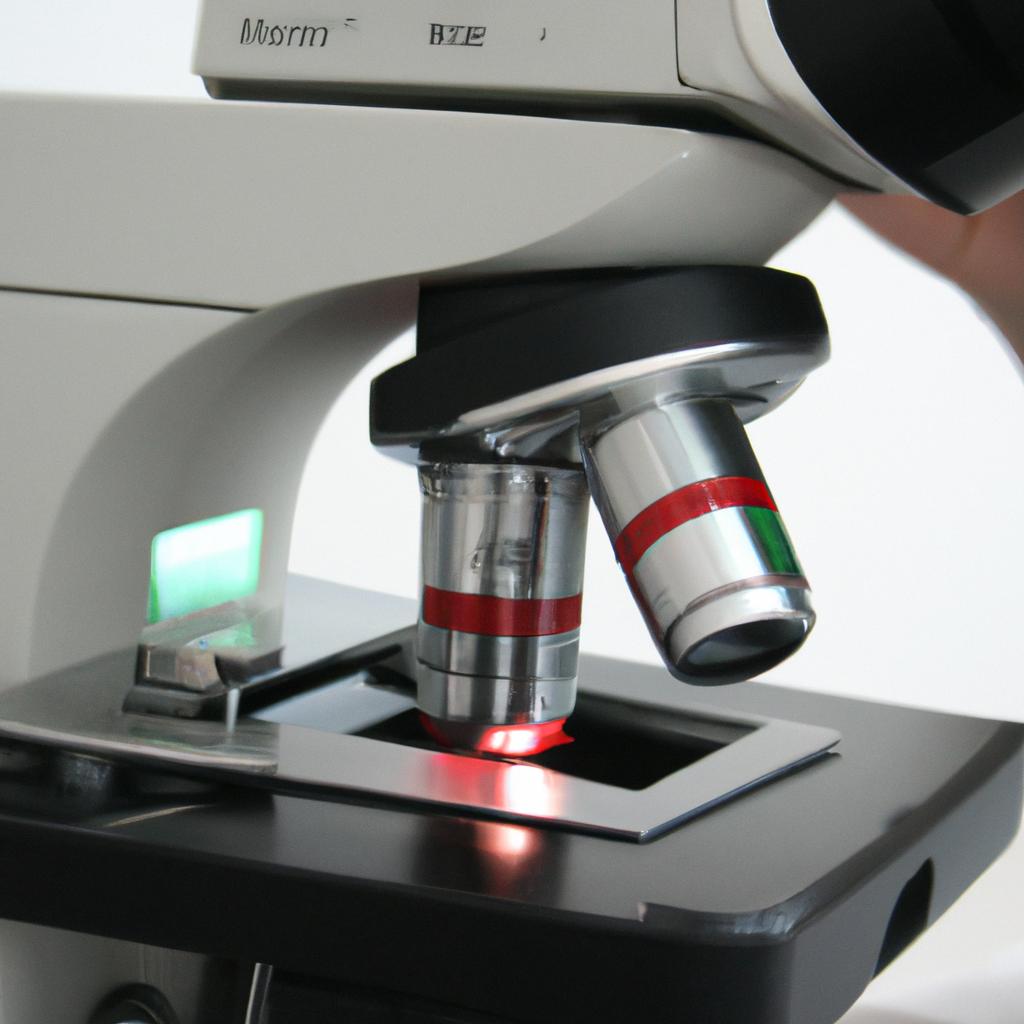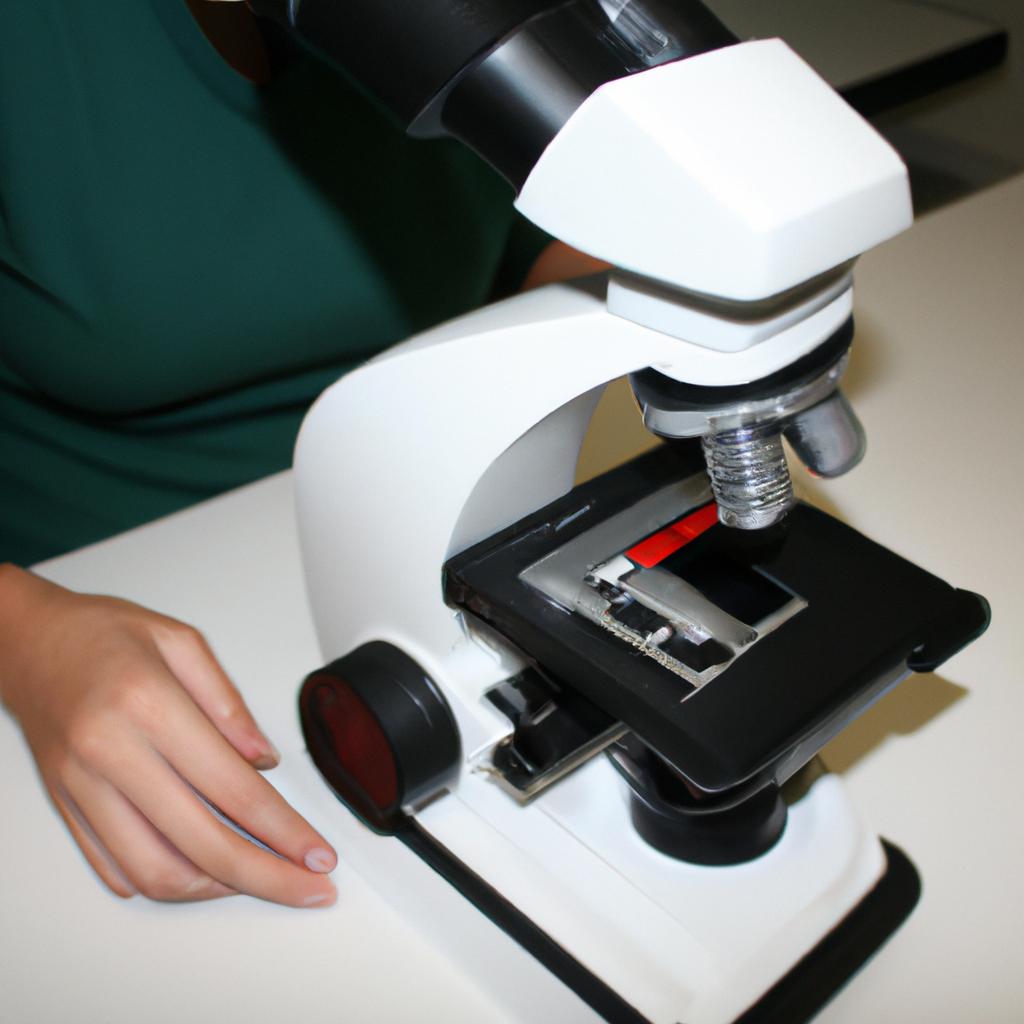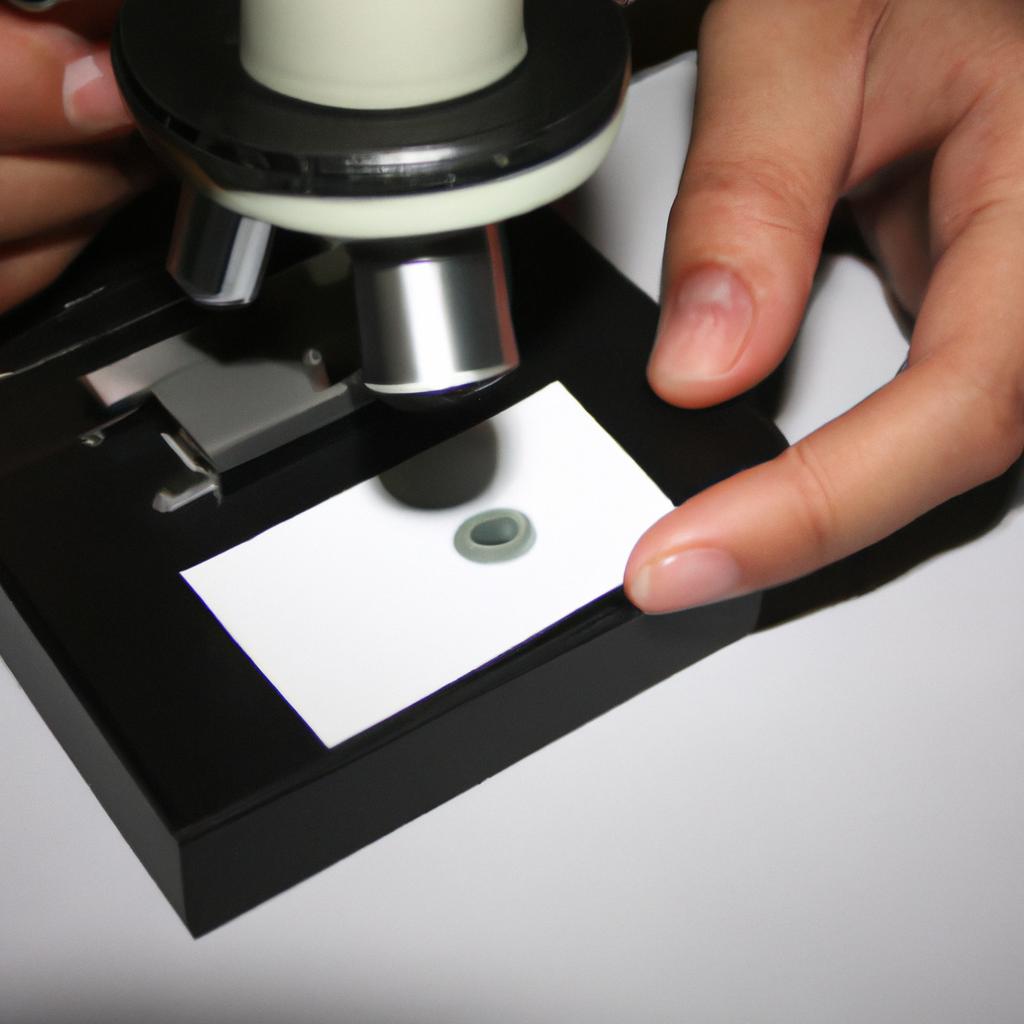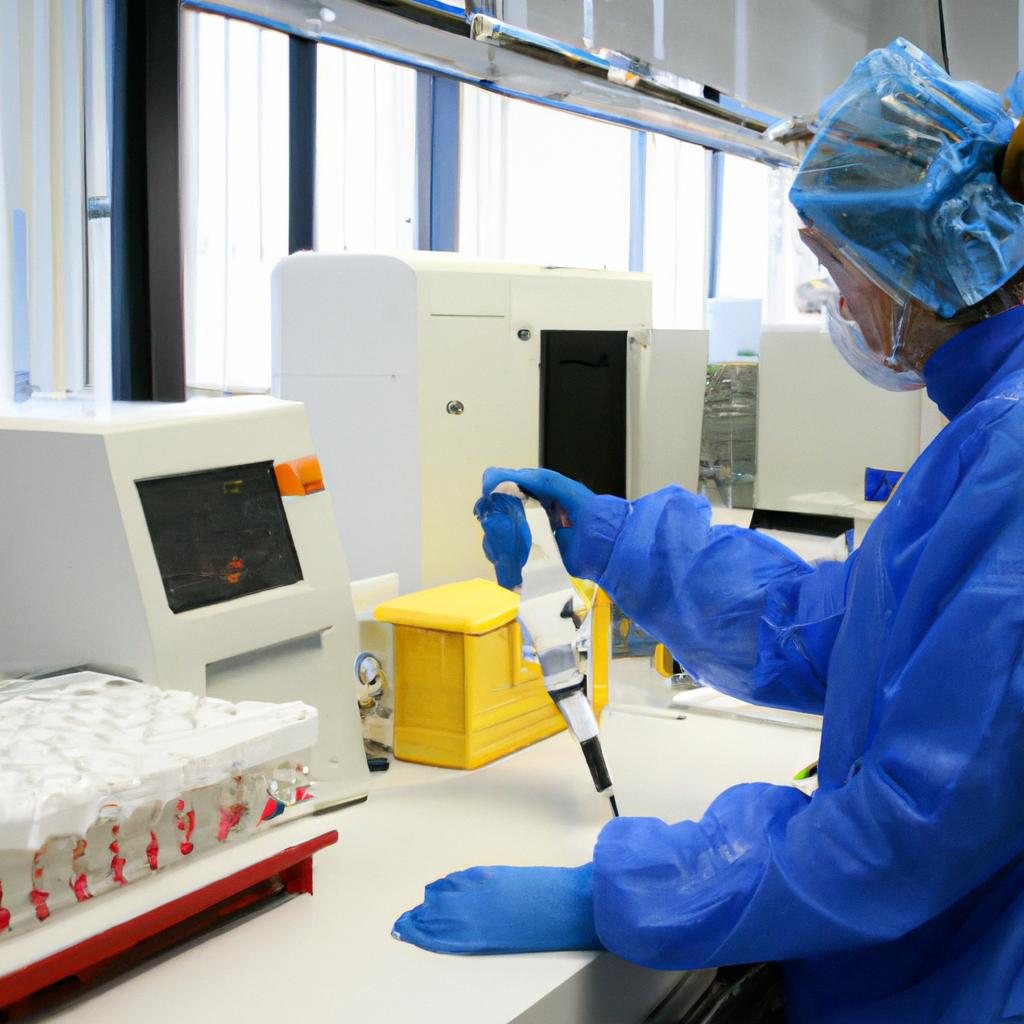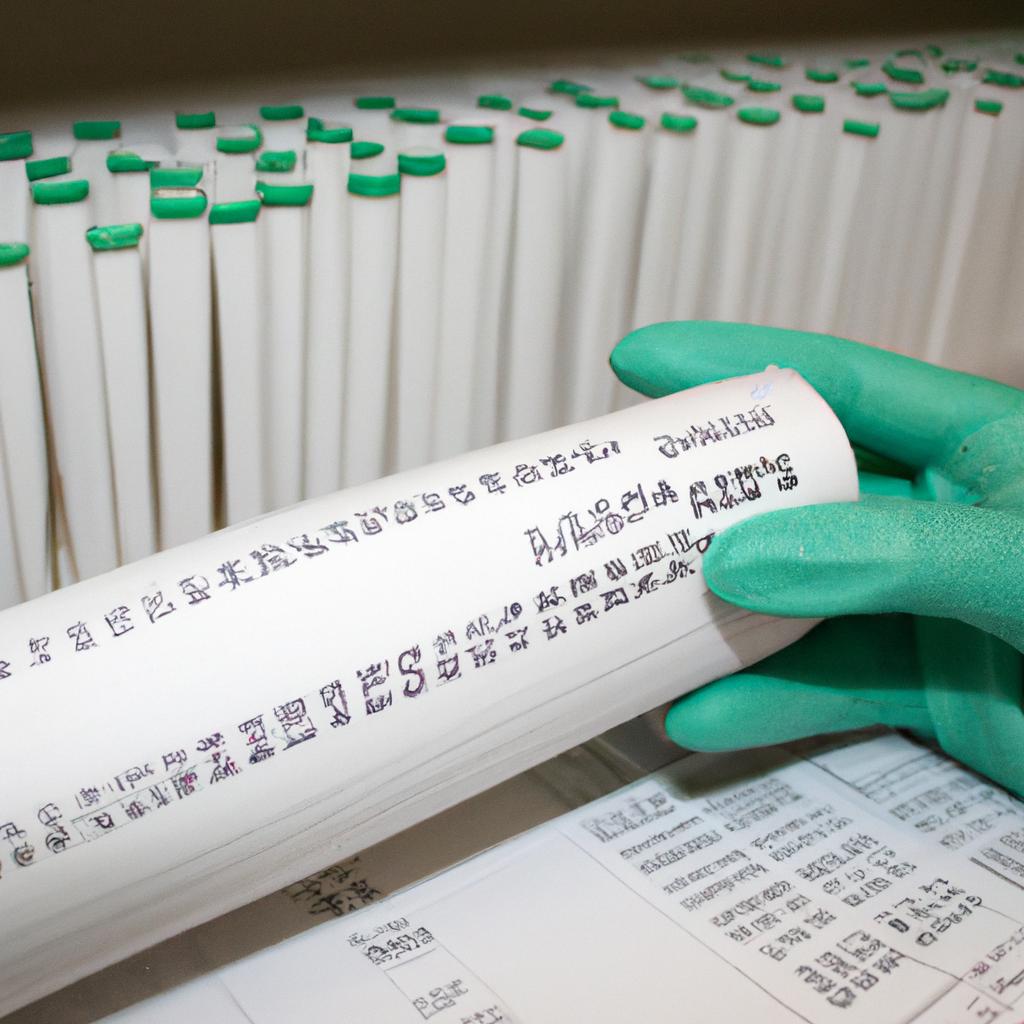In 2023, the demand for affordable short-term loans has become increasingly significant, as individuals seek financial assistance for various purposes. The current short-term loan market is characterized by a diverse array of options and providers. This article aims to provide an objective analysis of the factors that should be considered …
Read More »Cytoplasmic Abnormalities in Veterinary Clinical Pathology: Cellular Morphology
Cytoplasmic abnormalities play a crucial role in veterinary clinical pathology, specifically in the assessment of cellular morphology. These abnormalities can serve as valuable indicators of underlying diseases and provide insights into the health status of animals. By examining cytoplasmic features such as coloration, granularity, inclusion bodies, vacuolation, and presence of …
Read More »Enzyme Assays in Veterinary Clinical Pathology: A Guide to Clinical Chemistry
Enzyme assays play a crucial role in veterinary clinical pathology, providing valuable insights into the biochemical processes occurring within animals. These assays involve measuring the activity of specific enzymes present in biological samples, such as blood or urine, to aid in diagnosing and monitoring various diseases and conditions. For instance, …
Read More »Inclusion Bodies in Veterinary Clinical Pathology: Cellular Morphology Demystified
Inclusion bodies, also known as cytoplasmic or nuclear aggregates, are a common finding in veterinary clinical pathology. Despite their prevalence, the accurate identification and interpretation of inclusion bodies can pose challenges for veterinarians and laboratory technicians alike. This article aims to demystify the cellular morphology of inclusion bodies by providing …
Read More »Coagulation Profile in Veterinary Clinical Pathology: Hematological Insights
Coagulation profile analysis is an essential component of veterinary clinical pathology, providing valuable insights into the hemostatic system. Understanding the intricate mechanisms that regulate coagulation is crucial for diagnosing and monitoring various hematological disorders in animals. For instance, consider a hypothetical scenario where a dog presents with unexplained bruising and …
Read More »Parasite Life Cycles in Veterinary Clinical Pathology: A Comprehensive Overview
Parasites are a ubiquitous and diverse group of organisms that play a significant role in the field of veterinary clinical pathology. Understanding their life cycles is crucial for accurate diagnosis, treatment, and prevention of parasitic diseases in animals. This comprehensive overview aims to delve into the intricate world of parasite …
Read More »Infectious Organisms in Veterinary Clinical Pathology: Cellular Morphology
Infectious organisms pose a significant challenge in veterinary clinical pathology, particularly when it comes to cellular morphology. This field of study focuses on the examination and analysis of animal cells to diagnose diseases and identify infectious agents. One example that highlights the importance of understanding cellular morphology in veterinary clinical …
Read More »Immunoglobulins in Veterinary Clinical Pathology: An Overview of Immunology
The field of veterinary clinical pathology encompasses various diagnostic techniques and laboratory tests aimed at understanding the health status of animals. Among these methods, immunology plays a significant role in providing insights into the immune response of animals and detecting potential diseases. Immunoglobulins, also known as antibodies, are essential components …
Read More »Electrolyte Analysis in Veterinary Clinical Pathology: A Comprehensive Overview in Clinical Chemistry
Electrolyte analysis plays a crucial role in veterinary clinical pathology, providing valuable insights into the physiological status and overall health of animals. By measuring the concentrations of various electrolytes in body fluids, such as blood or urine, veterinarians can assess fluid balance, acid-base equilibrium, renal function, and other important parameters. …
Read More »Diagnostic Techniques in Veterinary Clinical Pathology: A Focus on Parasitology
Veterinary clinical pathology plays a crucial role in diagnosing and monitoring diseases in animals. Among the various diagnostic techniques employed, parasitology stands as an essential component for identifying and managing infections caused by parasites. For instance, consider a hypothetical scenario where a dog presents with recurrent gastrointestinal symptoms such as …
Read More »White Blood Cell Differential in Veterinary Clinical Pathology:Hematology Insights
White blood cell differential analysis is a crucial component of veterinary clinical pathology, providing valuable insights into the inflammatory and immune response in animals. By examining the proportions of different types of white blood cells present in a sample, veterinarians can gain important diagnostic information about various diseases and infections …
Read More »Charitable Organizations and Financial Assistance: Veterinary Clinical Pathology
Veterinary care plays a crucial role in promoting the health and well-being of animals. However, accessing specialized veterinary services can be financially burdensome for many pet owners. This is especially true when it comes to veterinary clinical pathology, which involves diagnostic testing and analysis to aid in the diagnosis, treatment, …
Read More »Parasitology in Veterinary Clinical Pathology: An Informational Overview
Parasitology plays a vital role in veterinary clinical pathology, providing valuable insights into the diagnosis and management of parasitic infections in animals. By studying the interactions between parasites and their hosts, veterinarians are able to identify specific parasites responsible for various diseases and develop effective treatment strategies. For instance, consider …
Read More »Urinalysis in Veterinary Clinical Pathology: Insights into Clinical Chemistry
Urinalysis holds a crucial role in the field of veterinary clinical pathology, providing valuable insights into clinical chemistry. By analyzing the composition and characteristics of urine samples obtained from animals, veterinarians can gain invaluable information about their patients’ overall health and identify potential underlying conditions. For instance, consider a hypothetical …
Read More »Immunology in Veterinary Clinical Pathology: Key concepts and applications
Immunology in veterinary clinical pathology is a vital field that encompasses the study of immune responses and their applications in diagnosing and monitoring diseases in animals. By understanding the key concepts and principles behind immunological processes, veterinarians can effectively assess an animal’s immune system functionality, identify potential disorders or infections, …
Read More »Grants and Scholarships: Funding Veterinary Clinical Pathology’s Financial Assistance
Veterinary clinical pathology, a specialized field within veterinary medicine that focuses on the diagnosis and monitoring of diseases in animals through laboratory testing, plays a crucial role in animal healthcare. However, pursuing a career in this field can be financially challenging for many aspiring veterinarians due to the high cost …
Read More »The Feasibility of Crowdfunding: Financial Assistance in Veterinary Clinical Pathology
Crowdfunding has emerged as a popular means of financial assistance in various domains, providing individuals and organizations with the opportunity to raise funds for diverse causes. In recent years, its potential application within the field of veterinary clinical pathology has gained attention and sparked debate among professionals and researchers. This …
Read More »Treatment Options in Veterinary Clinical Pathology: Focus on Parasitology
Parasitic infections in animals can pose significant health risks and challenges for their owners. Timely and accurate diagnosis is crucial in order to implement appropriate treatment strategies, ensuring the well-being of both the animal and humans it may come into contact with. This article aims to explore the various treatment …
Read More »Blood Gas Analysis in Veterinary Clinical Pathology: Insights on Clinical Chemistry
Blood gas analysis is a crucial tool in veterinary clinical pathology, providing valuable insights into the acid-base balance and respiratory status of animals. This diagnostic technique allows for the evaluation of blood pH, partial pressure of oxygen (pO2), partial pressure of carbon dioxide (pCO2), bicarbonate ion concentration (HCO3-), and other …
Read More »Vaccination in Veterinary Clinical Pathology: Immunology Insights
Vaccination plays a crucial role in veterinary clinical pathology, as it aids in the prevention and control of infectious diseases among animals. Immunology insights provide valuable understanding of how vaccines stimulate immune responses and confer protection against pathogens. For instance, consider the case study of a dog presenting with symptoms …
Read More »Ectoparasites: Veterinary Clinical Pathology in Parasitology
Ectoparasites, such as fleas and ticks, have long plagued both domesticated animals and their human companions. These external parasites not only cause discomfort to the host but can also transmit a wide range of diseases. Veterinary clinical pathology plays a crucial role in diagnosing and managing these parasitic infestations. For …
Read More »Immunodeficiency Disorders in Veterinary Clinical Pathology: A Comprehensive Overview
Immunodeficiency disorders are a group of conditions characterized by an impaired immune response, resulting in increased susceptibility to infections and other diseases. In veterinary clinical pathology, these disorders pose significant challenges for accurate diagnosis and effective management. Understanding the underlying mechanisms and manifestations of immunodeficiencies is crucial not only for …
Read More »Endoparasites in Veterinary Clinical Pathology: A Comprehensive Overview in Parasitology
Endoparasites, a diverse group of organisms that live inside the body of their host, pose significant challenges to veterinary clinical pathology. These parasites can have detrimental effects on the health and well-being of animals, leading to various diseases and complications. Understanding the intricacies of endoparasitic infections is crucial for veterinarians …
Read More »Sliding Scale Fee Structures in Veterinary Clinical Pathology: Financial Assistance Explained
The provision of affordable and accessible veterinary care is a pressing concern for many pet owners. High costs associated with diagnostics, such as clinical pathology tests, often pose barriers to receiving timely and appropriate medical attention for their beloved animals. However, sliding scale fee structures have emerged as a potential …
Read More »Financial Assistance in Veterinary Clinical Pathology: A Comprehensive Guide
Veterinary clinical pathology plays a crucial role in diagnosing and monitoring diseases in animals. However, access to comprehensive diagnostic services can often be hindered by financial limitations. Consider the case of Sarah, a devoted pet owner who recently noticed unusual symptoms in her beloved cat, Luna. Concerned for Luna’s health, …
Read More »Veterinary Clinical Pathology: Hematology Insights
Veterinary clinical pathology is a crucial aspect of veterinary medicine, providing valuable insights into the health and well-being of animals. One area within this field that warrants special attention is hematology, which involves the study of blood cells and their components. By analyzing various parameters such as red blood cell …
Read More »Hematopoietic Disorders in Veterinary Clinical Pathology: Cellular Morphology
Hematopoietic disorders encompass a wide range of conditions that affect the production, maturation, and function of blood cells in veterinary medicine. These disorders can manifest as abnormalities in cellular morphology, leading to significant diagnostic challenges for clinicians and pathologists. Understanding the intricacies of hematopoiesis and recognizing characteristic morphological changes are …
Read More »Humoral Immunity in Veterinary Clinical Pathology: An Overview of Immunology
Humoral immunity plays a crucial role in veterinary clinical pathology as it contributes to the defense against infectious agents and helps maintain overall health. This article aims to provide an overview of immunology with a specific focus on humoral immunity, shedding light on its importance in veterinary medicine. By understanding …
Read More »Prevention Strategies in Veterinary Clinical Pathology: Parasitology Focus
In veterinary clinical pathology, the prevention of parasitic infections plays a crucial role in ensuring optimal health and well-being of animals. Parasites can have detrimental effects on host organisms, causing various diseases and impairing overall physiological functions. For instance, consider a hypothetical case study where a dog named Max presents …
Read More »Coagulation Testing in Veterinary Clinical Pathology: Informative Insights
Coagulation testing plays a crucial role in veterinary clinical pathology, providing informative insights into the hemostatic status and potential bleeding disorders in animals. By assessing various coagulation parameters, such as clotting times, fibrinogen levels, and platelet counts, veterinarians can obtain valuable information about an animal’s ability to form clots and …
Read More »Bone Marrow Examination in Veterinary Clinical Pathology: Insights into Hematology Analysis
Bone marrow examination plays a pivotal role in veterinary clinical pathology as it provides valuable insights into the hematology analysis of animals. This procedure involves the extraction and evaluation of bone marrow tissue, which can yield crucial information about various hematological disorders and diseases. By examining the cellular composition, distribution, …
Read More »Parasites and Veterinary Clinical Pathology: Cellular Morphology
Parasitic infections in animals have long been a significant concern for veterinary clinicians. The identification and characterization of parasites can provide crucial insights into the diagnosis, treatment, and prevention of these infections. One notable aspect of studying parasitology is its intersection with veterinary clinical pathology, particularly in the examination of …
Read More »Clinical Chemistry in Veterinary Clinical Pathology: A Comprehensive Guide
Clinical chemistry is a crucial component of veterinary clinical pathology, providing valuable insights into the health and well-being of animals. By analyzing various biochemical parameters in blood, urine, and other bodily fluids, clinicians can detect and monitor diseases, assess organ function, evaluate nutritional status, and guide therapeutic interventions. For instance, …
Read More »Red Blood Cell Indices in Veterinary Clinical Pathology: A Hematological Insight
Red blood cell indices play a crucial role in veterinary clinical pathology, providing valuable insights into the health and well-being of animals. By assessing various parameters such as mean corpuscular volume (MCV), mean corpuscular hemoglobin concentration (MCHC), and red blood cell distribution width (RDW), veterinarians can gather important information about …
Read More »Cellular Morphology: An Informative Guide to Veterinary Clinical Pathology
Cellular morphology is a fundamental aspect of veterinary clinical pathology that plays a crucial role in the diagnosis and management of various diseases. By examining the size, shape, coloration, and arrangement of cells under a microscope, veterinarians can gain valuable insights into the underlying pathophysiological processes occurring within an animal’s …
Read More »Platelet Count in Veterinary Clinical Pathology: A Comprehensive Guide to Hematological Evaluation
Platelet count plays a crucial role in veterinary clinical pathology, providing essential information about an animal’s health status and aiding in the diagnosis of various hematological disorders. Understanding platelet count involves assessing both quantitative and qualitative aspects, which require comprehensive evaluation through meticulous laboratory techniques. This article aims to provide …
Read More »Community Fundraising Events: Supporting Financial Assistance in Veterinary Clinical Pathology
Community fundraising events play a crucial role in providing financial assistance to support veterinary clinical pathology. These events serve as avenues for individuals and organizations to come together, contribute resources, and raise funds that can help ensure access to vital diagnostic services for animals in need. For instance, consider the …
Read More »Cell-Mediated Immunity in Veterinary Clinical Pathology: A Comprehensive Overview
Cell-mediated immunity plays a crucial role in veterinary clinical pathology, as it forms the cornerstone of the body’s defense mechanism against various pathogens and foreign substances. This comprehensive overview aims to delve into the intricate workings of cell-mediated immunity in veterinary medicine, shedding light on its significance for accurate diagnosis …
Read More »Complete Blood Count: Veterinary Clinical Pathology Hematology+ Information
Complete Blood Count (CBC) is a fundamental diagnostic tool in veterinary clinical pathology hematology+. It provides crucial information about the cellular components of an animal’s blood, aiding veterinarians in the diagnosis and monitoring of various diseases. For instance, imagine a patient presenting with lethargy and pale mucous membranes. A CBC …
Read More »Nuclear Abnormalities in Veterinary Clinical Pathology: Cellular Morphology
Nuclear abnormalities in veterinary clinical pathology play a crucial role in the diagnosis and management of various diseases. The study of cellular morphology enables veterinarians to identify deviations from normal nuclear features, leading to an accurate assessment of pathological conditions. For instance, consider a hypothetical case where a canine patient …
Read More »Income-Based Repayment Programs for Veterinary Clinical Pathology: Unlocking Financial Assistance
Income-Based Repayment (IBR) programs have become a crucial financial tool for many professionals seeking higher education, including veterinary clinical pathology students. These programs offer an alternative approach to managing student loan debt by adjusting monthly payments based on the individual’s income and family size. For instance, consider the hypothetical case …
Read More »Antibody Production in Veterinary Clinical Pathology: A Comprehensive Perspective on Immunology
Antibody production plays a crucial role in the field of veterinary clinical pathology, providing valuable insights into the immune response and aiding in the diagnosis and treatment of various diseases. Understanding the mechanisms behind antibody production is essential for veterinarians to comprehensively evaluate an animal’s immune status and make informed …
Read More »Lipid Profiles in Veterinary Clinical Pathology: Insights from Clinical Chemistry
The assessment of lipid profiles in veterinary clinical pathology plays a crucial role in the diagnosis, monitoring, and management of various diseases in animals. By analyzing lipids present in biological samples such as blood or tissue, clinicians can gain valuable insights into metabolic disorders, cardiovascular diseases, and endocrine imbalances among …
Read More »Columbus Urban League helps black-owned businesses with new round of PPP loans
COLUMBUS (WCMH) – Applications are now open for the second round of Paycheck Protection Program loans. Just go to green day online site The Columbus Urban League is working to ensure that this time around, black businesses are not left out of the process. The first round of loans last …
Read More » Vet Clin Path Journal
Vet Clin Path Journal


